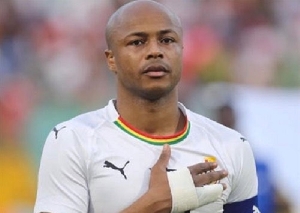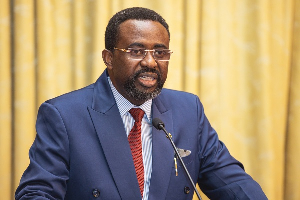Buipe (NR), Feb. 5, GNA - School for Life (SfL), a Tamale-based international non-governmental organisation is assisting about 12,000 children from selected deprived districts to be educated to the tertiary level. SfL is an umbrella body of the Ghana Developing Communities Association (GDCA), a Ghana-Danish NGO based in the Northern Region that aims at providing functional literacy education and skills to out-of-school children.
The organisation relies on the mother tongue language, functional teaching materials, flexible and suitable school calendar and voluntary commodity based facilitators to teach. The Danish Fund for International Development (DFID) is sponsoring the project dubbed: "Literacy for Life Change (LLC) project" with one million pounds sterling. The fund is to ensure the provision of full learning materials, school uniforms and full fees paid for the beneficiary children through to tertiary level. The beneficiary districts are Central Gonja in the Northern Region, Bawku West in the Upper East Region and Nadowli and Jirapa districts in the Upper West region. Three thousand children were drawn from each district.
Mr Suleman Osman Saaka, Programme Director for SfL, who launched the LLC project in Buipe in the Central Gonja District on Wednesday, said School for Life had gone through three successful phases and was currently running a transitional phase for a more sustained programmes to attract more donor support. He said there are some 500,000 out-of-school children in the country with a greater number from the three Northern Regions, which called for measures to integrate them into schools as means of shaping their future.
Mr Saaka said the districts were selected based on the successful implementation of the Complementary Education and Community Support components of the Education Quality for All (EQUALL) project in the third phase of SfL. Mr Saaka said DFID made an independent search for innovative approaches to development and got convinced that the SfL approach was the best and was providing an avenue for educating several children who were out-of-school.
He called on traditional authorities, stakeholders in education, District Assemblies and its donors for stronger collaboration to ensure that as many children as possible had access to education. Madam Yvonne Agbesi, Deputy Programmes Manager of Human Development and Accountability Team of DFID said there was a growing recognition internationally that complementary education systems were the most effective ways to close the education gap in rural areas. She said the LLC project would specifically be apply affirmative action to strengthen girl-child education, promote the use of mother tongue as a medium of instruction at the primary level and advocate for the approval and the implementation of the draft Complementary Basic Education Policy, which was developed in 2007. Madam Agbesi said DFID was committed to helping the country to achieve its national commitment on education saying, "That is why the UK government in 2006 committed some 100 million pounds sterling as a sector budget for the Ministry of Education over a ten-year period." Mr Joseph Kumah, Central Gonja District Director of Education stressed the importance of the LLC project to the development of education in the district and urged management of SfL to spread its support to all areas of the district. 5
Regional News of Thursday, 5 February 2009
Source: GNA
















